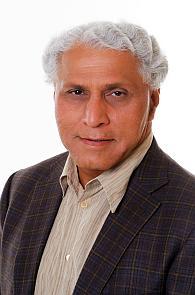 | « Back to article | Print this article |
Billionaire entrepreneur and Silicon Valley IT heavyweight, Romesh T Wadhwani, has said Indian companies ‘whining’ about the new immigration bill’s restrictions is totally misplaced. In an exclusive interview with Rediff, Wadhwani, founder and chairman of Symphony Technology Group - a private equity firm based in Palo Alto, California, said there’s no reason for just four to five Indian IT giants to continuing grabbing a lion’s share of H-1B visas year after year.
In an exclusive interview with Rediff, Wadhwani, founder and chairman of Symphony Technology Group - a private equity firm based in Palo Alto, California, said there’s no reason for just four to five Indian IT giants to continuing grabbing a lion’s share of H-1B visas year after year.
Symphony Technology Group has over a dozen software and software services companies under its umbrella, employing over 15,000 people, and doing more than $3 billion in business each year.
Asked about the new immigration bill’s provisions that would essentially give green cards to PhDs in STEM (Science, Technology, Engineering and Mathematics) and restriction on the number of H-1B visa holders a company could employ, Wadhwani said, “I would separate the two issues because to me there is a lot of confusion about them.”
“I feel that STEM graduates who meet a certain minimum threshold of academic achievement should be given green cards or at least a pathway to a green card, and then to citizenship. So long as the academic achievement is good and they are in one of those disciplines, there is a decent chance that they might start a company and create jobs. Even if they don’t turn out to be entrepreneurs, they will be high value employees of some existing US company.”
Wadhwani noted, “H-1B visas for me fall in a different category, and obviously the objective here is not to second guess what Congress is doing because this is a very difficult issue.”
“People in India can’t take it personally because it is not the only country affected by the immigration reform,” he said.
“Of all countries, the US is most affected by the immigration reform. In the end whatever goes through Congress is going to be a compromise, no one is going to